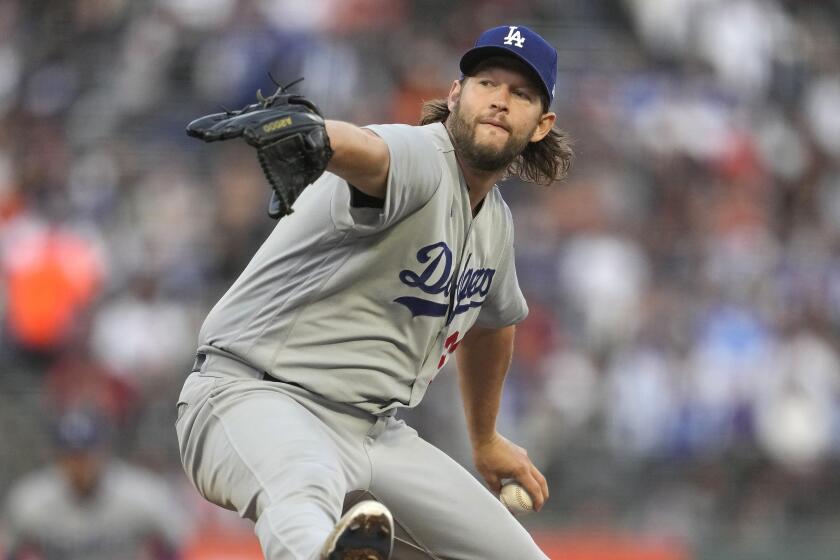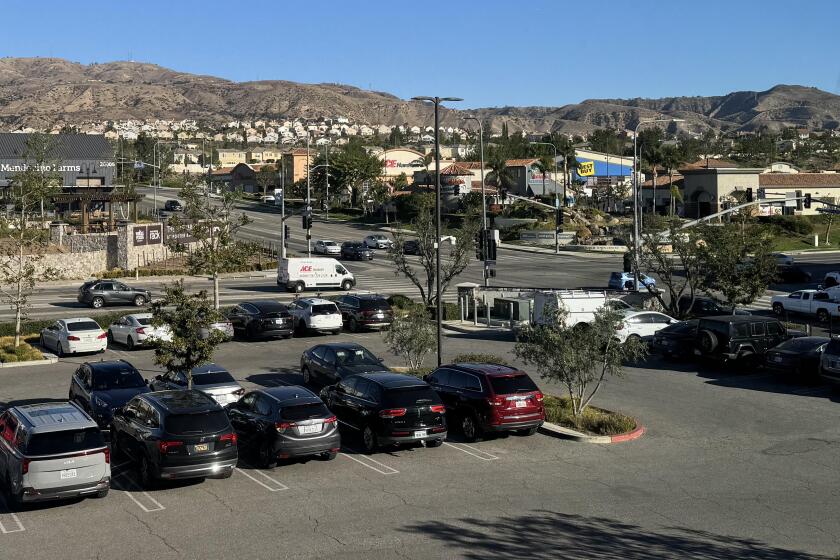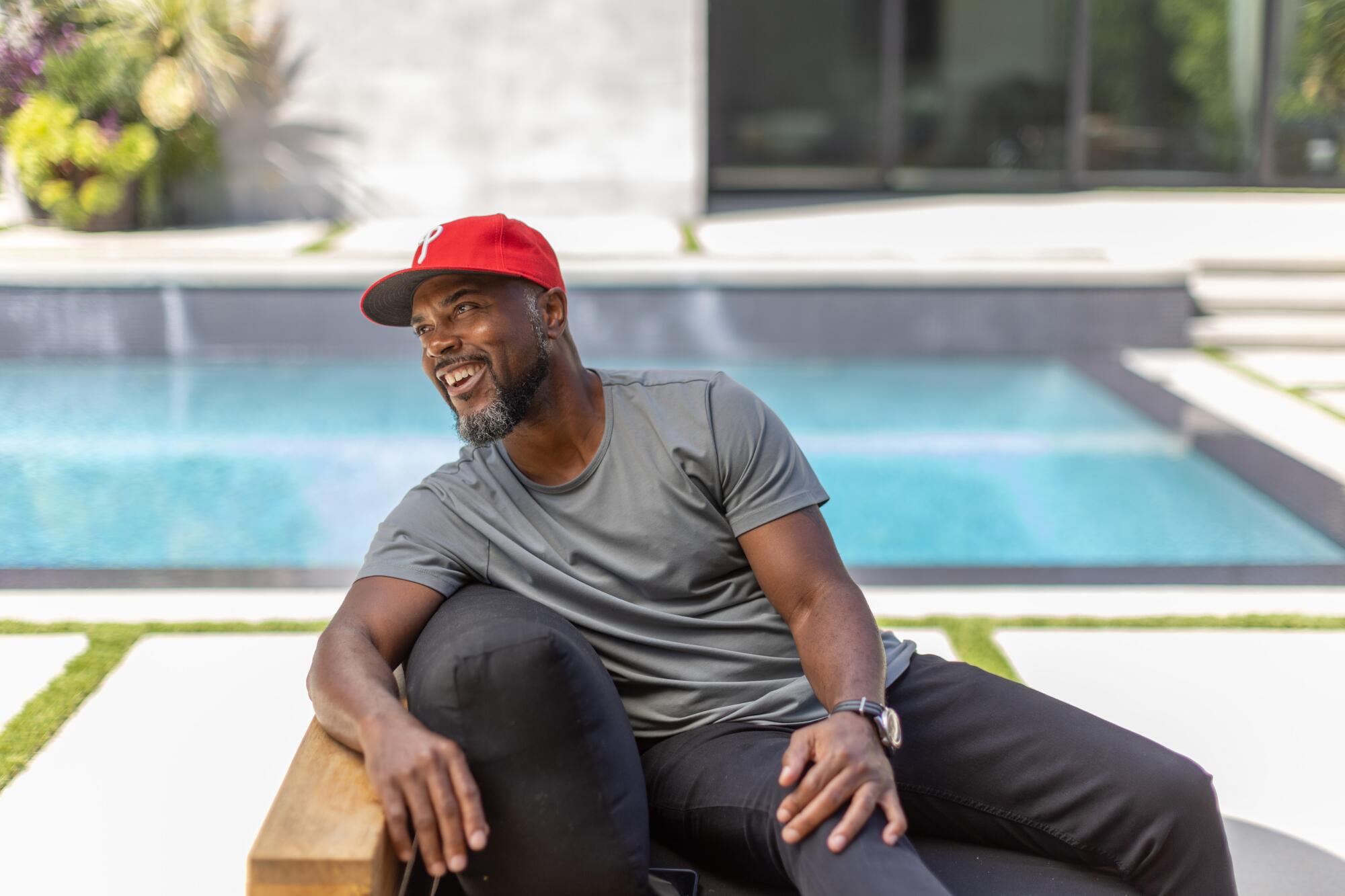
- Share via
Tyler Tynes, Times sports culture critic and a Philadelphia native, sat down with Jimmy Rollins, a former Phillies star shortstop who spent one season with the Dodgers before eventually becoming an “MLB on TBS” analyst. Rollins grew up in Oakland, is widely known by the nickname “J-Roll” and has high hopes for the Phillies’ chances of winning a World Series.
The following interview has been edited for length and clarity.
Tynes: What’s it like being an Oakland cat coming into Philadelphia in 2000? Because one of the first things that people would say about you, who didn’t know you, was an impression that you were unfriendly.
Rollins: So, Philly has changed a lot in that sense, but it hasn’t in others. You got to understand: We comin’ from a place where we lost 90-something, 100 games. I came up from the minors and the first I heard about the Philly press wasn’t good. They were tough. You had to stand in front of the cameras, answer the questions honestly and don’t make no excuses. But, the best thing you could do is avoid ’em. Don’t read the newspaper. Don’t turn on the radio. Don’t watch the TV, because it’s all negative. … I’m not a person who’s just going to let you in my inner circle. You don’t know me. It took a lot to learn how to trust the media. I also learned early on that, especially in sports journalism, there’s a story written before they come down to the clubhouse.
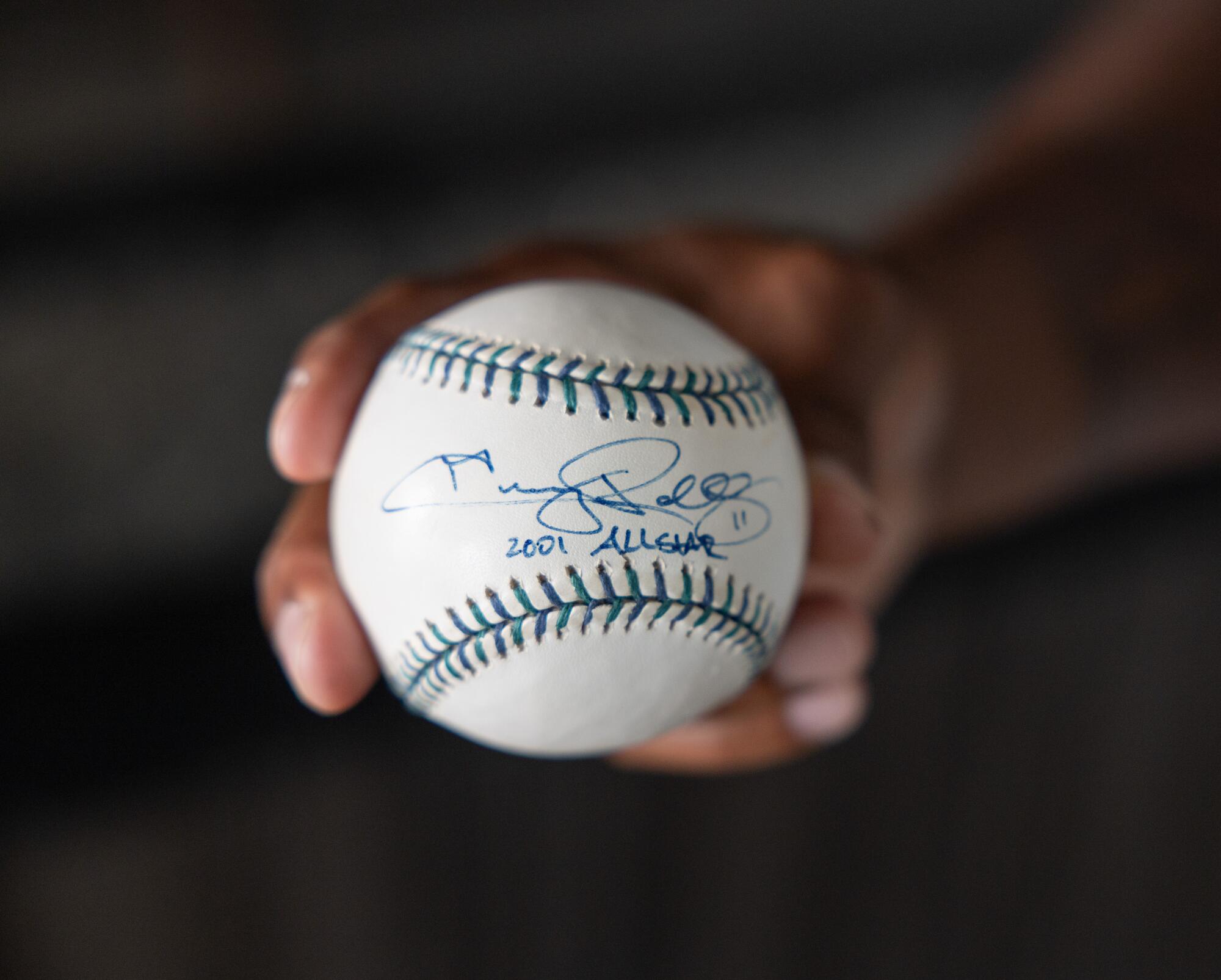
Tynes: Many times, yes.
Rollins: All they need for you, especially the younger guys, is a quote for you to finish out their story and they’re setting you up with a question that fits their story. So … I wouldn’t do that. As I got older, I became more savvy, but I just wasn’t going to do that. So, they thought I wasn’t friendly or that I didn’t talk.
Tynes: Did it feel insulting to get that treatment for so many years?
Rollins: I was going to be authentic. I’m not going to make something up. I’m not going to try and make something sound cool. It is what it is. So I was misunderstood because like most athletes, well, s—, Black athletes, we supposed to be humble and thankful for these opportunities as if we didn’t work just as hard as the next person to get here. And, on top of that, had to overcome s— that they did not … so I was misunderstood and taken out of context because they didn’t know my whole backstory. And that was fine. I was perfectly OK with that. I had been dealing with it. You just do what you have to do, you become a chameleon and adapt.
Tynes: In the part of the city where I grew up, there was a deep appreciation for you. … For 14 years you had Black kids growing up, wanting to play shortstop. At this point in your life, does it feel good at all knowing that you changed something for a generation of Black Philadelphia?
Rollins: The funny thing is, it does exist. We were all kids once. I wanted to be Ozzie Smith. I wanted to be Barry Bonds.
Clayton Kershaw is no longer an overwhelming force, but his start Saturday against the Giants showed why he is set to pitch Game 1 of the NLDS for the Dodgers.
Tynes: You also wanted to be Rickey Henderson
Rollins: I didn’t want to be Rickey, I was Rickey, you know what I’m sayin’? [laughs] … So I know it happens. I know it existed. It’s tangible. I’m not a superhero or anything, but it is tangible. When I see folks, I’m going to talk to you, going to smile and we gonna joke. It’s all real. And I appreciated that. I don’t know if I ever sat there and thought about it [fully]. I think that was a little bit beyond what I thought of myself, in a sense. I knew somebody’s looking up to me, so I was gonna make sure whenever they met me, they were meeting a real person. So whenever they went home, they could be like, “Yo, he just like me.” You know what I’m saying? It was great to hear those things from those kids who wore No. 11, or grew up wanting to play shortstop like me. But, I always told the kids to be better than me. I had my shortcomings as a player. But, I always wanted more for the kids than what they saw in me.
Tynes: Where do you think that sort of introspection came from during your career? Watching your mother play softball growing up? Seeing your father be a bodybuilder and wrestler or this family of athletes that y’all had?
Rollins: Honestly, I don’t know. My mom played softball, and it’s funny: It wasn’t until I won MVP in ’07 that she finally said, “OK, you might be the best baseball player in the family.” Even then, she still wouldn’t give me all the credit. So, I learned that part from my mom, how to talk the trash but still show up. My dad, he was the complete opposite. He was going to show up in silence like an assassin and whoop you every which way to make sure you know you can’t f— wit’ him. Not in practice, or a game. He’d change the way we thought about practice. So, there was a discipline to both, to know how to talk it, but also back it up. It taught me the reality of what life is and that we are greater than just a uniform.
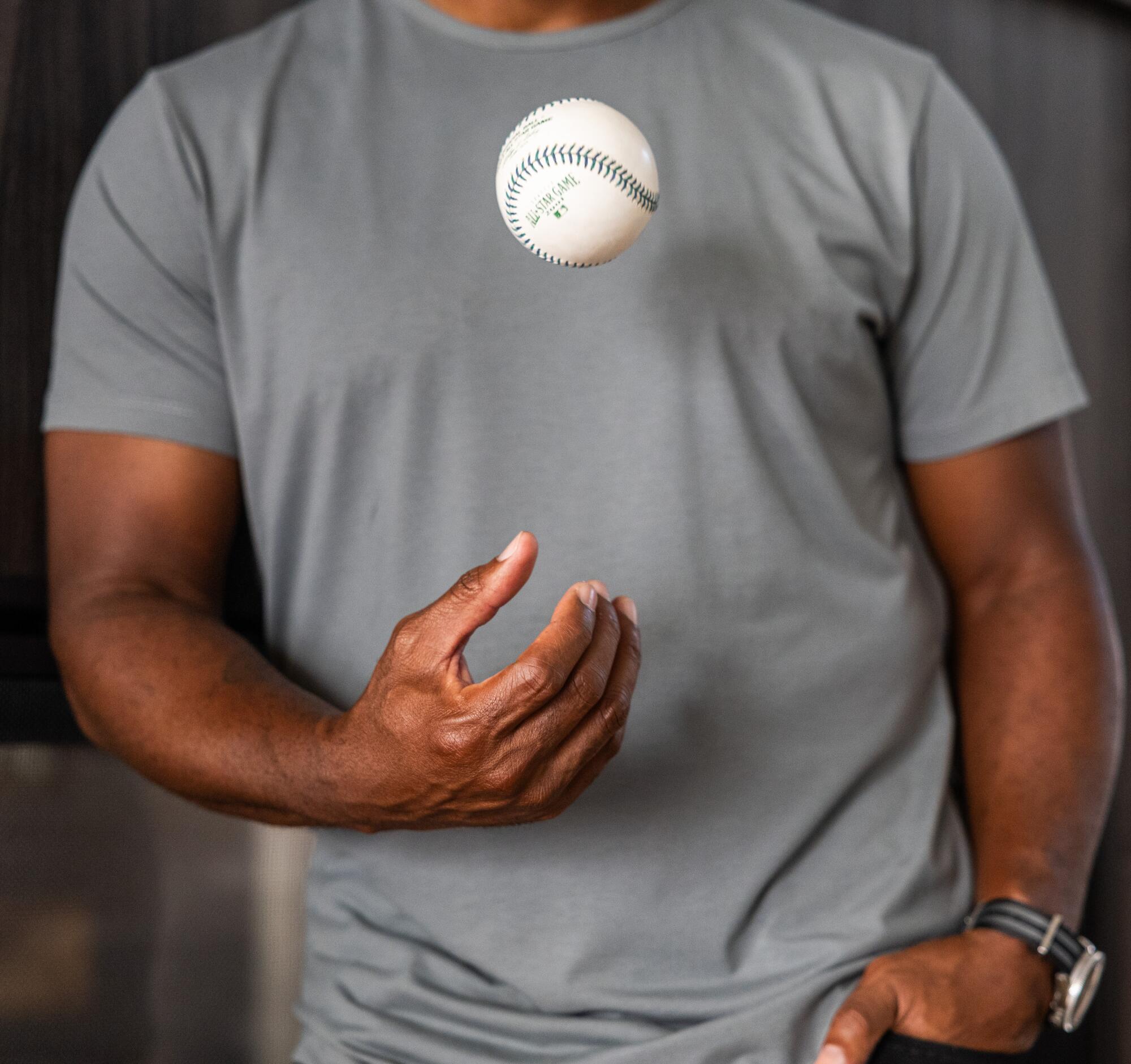
Tynes: When do you think you first realized that?
Rollins: It first hit me when we won the North Coast Sectional in high school. It was my junior year of high school. We won it and I remember walking through the stadium asking myself, “What does it all mean?” Like, I was still going to school tomorrow. I still got to go get grades. I got another year of high school. And I ain’t get no money from this. … We get a banner, we got some dinner and then what? We left. So perspective was given to me then. … When I was 10 years old, I knew I’d be a professional baseball player. It was just a matter of time. And back then, if someone offered me a billion dollars to not play baseball for the rest of my life, I wouldn’t take it. I thought I’d just go make my money playin’ ball. That’s how dedicated I was.
Tynes: So what snapped you out of it?
Rollins: I met Dusty Baker. He [is] from Sacramento. I ain’t know he was from out there. But he was a homeboy. He was the manager of the San Francisco Giants at the time. And I was the MVP of the Babe Ruth League in Oakland. So I was there with him, sitting. We just talking, talking, talking. And he’s like, “Well, you must be pretty good.” I was like, “I mean, I guess. They seem to think so.” But freaking Dusty Baker told me I’m good. I was 10, but come on. And we was just going back and forth. The last thing I remember him saying was, “If they think you’re that good, if you continue, you’ll be good enough to make it.” The reality was: This fool ain’t never seen me play. … But that thought kept coming back to my mind. Dusty Baker didn’t even know me, and he tellin’ me I could be a big leaguer. I didn’t care what anybody said after that. I didn’t care if I won MVP ever again. Dusty Baker told me I’m a big leaguer. So, I had to go off. I had to make it. I didn’t even need to be driven anymore.
Tynes: Do you think you should have got one more MVP trophy, or a few more Golden Glove honors?
Shohei Ohtani makes his first appearance at Angel Stadium in days to be honored as the Angels’ 2023 team MVP before a 7-3 loss to the Oakland Athletics.
Rollins: I should have got one MVP. The one MVP was deserved, even if I didn’t get to go to an All-Star Game the year I won it. So one more All-Star. I got four Gold Gloves. I should have seven. Seven or eight Gold Gloves.
Tynes: You left Philly in 2014 and came out here to L.A. to play for the Dodgers. What did it feel like to finally be in a new place in your career, especially as it was winding down?
Rollins: I was fine with it. Look, they asked me for a trade in the beginning of the season. They told me if I ever wanted to go somewhere, to let them know. I was like, “What the f— are you talking about?” Fourteen years in, what are you talking about? It was like, “Nah, I’m good.” Quick conversation. Then, right around the All-Star break, they came to me again. Took me out to lunch, told me they were going to rebuild, and if I ever wanted to go somewhere, I didn’t have to be around for it … just as a “thank you.”
Tynes: How kind …
Rollins: I was at the end of my career, no matter how you look at it. I was at the end and we had a conversation. I told them I would think about it, just to appease them. The season ended, they brought me into the office, I thought it was an exit interview. And they were like, “Jimmy…” Nope, this is baseball, there ain’t no three strikes. I told them, straight up, you get me to the Dodgers. I wanted to wear No. 42 in a Dodger uniform on Jackie Robinson Day. I didn’t think I would ever leave Philly, but when I was asked a third time …
Tynes: Didn’t hesitate, huh?
Rollins: I mean, we were in there for seven minutes, maybe. I told them if they can get me to L.A., just call me when the trade is done. If it was somewhere else, I had a no-trade clause. I had another year on my contract and I’d just finish it out. But, L.A.? If you could get me to L.A., I’ll take it. I was there to fill a position. It was the first time in my career where I could really just play baseball.
Tynes: Did you ever think you’d end up doing this broadcast thing?
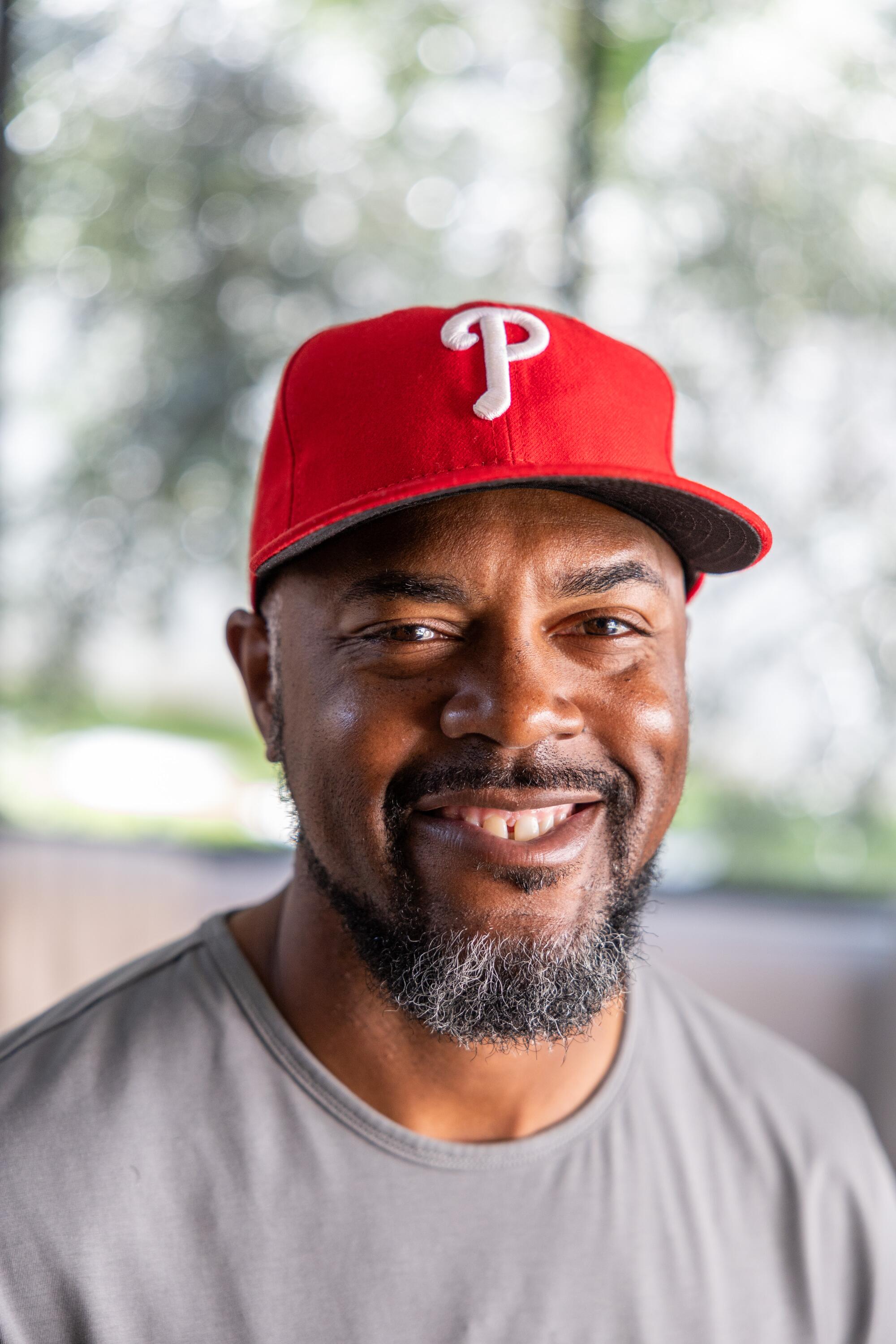
Rollins: Hell, no [laughs]. It was cheesy! Every athlete stopped playing and went and did broadcasting. I wasn’t finna do this s—. I was going to do whatever the hell I wanted to do. And then when [retirement] came, the closer and closer, you start thinking of ways. At least, I did. How do I stay connected to the game? I don’t want to work for the organization. I got a family, I got daughters. I had already done some broadcasting while I was playing, covering the World Series in 2013 with Fox Sports 1.
Tynes: How do you feel about the Phillies’ chances the next few years?
Rollins: I like what they’re building. It hasn’t been built until you put that one, last stone on too. They’re still one floor short, but they’re solid. It’s different, a different game these days. I don’t understand some of the moves they make, especially their lineup. But it works. The only thing that matters most is what those guys in that clubhouse think and what they have bought into for the way they operate. So, I like that. They’re an exciting team, real exciting team. The bullpen reminds me of ours, although we had a solid bullpen, a lot of times we were just white-knuckling to the end. It’s that same feeling here.
My only concern is [Atlanta]. It’ll be Atlanta-Phillies or Phillies-Dodgers. You look at them cats on paper, and position by position, [the Phillies] have excitable guys. They seem like they’re better. Yeah, they do. … So, I like the [Phillies’] chances. If they get out of the first round, they can run the table just like they did last year and beat Atlanta.
More to Read
Go beyond the scoreboard
Get the latest on L.A.'s teams in the daily Sports Report newsletter.
You may occasionally receive promotional content from the Los Angeles Times.
